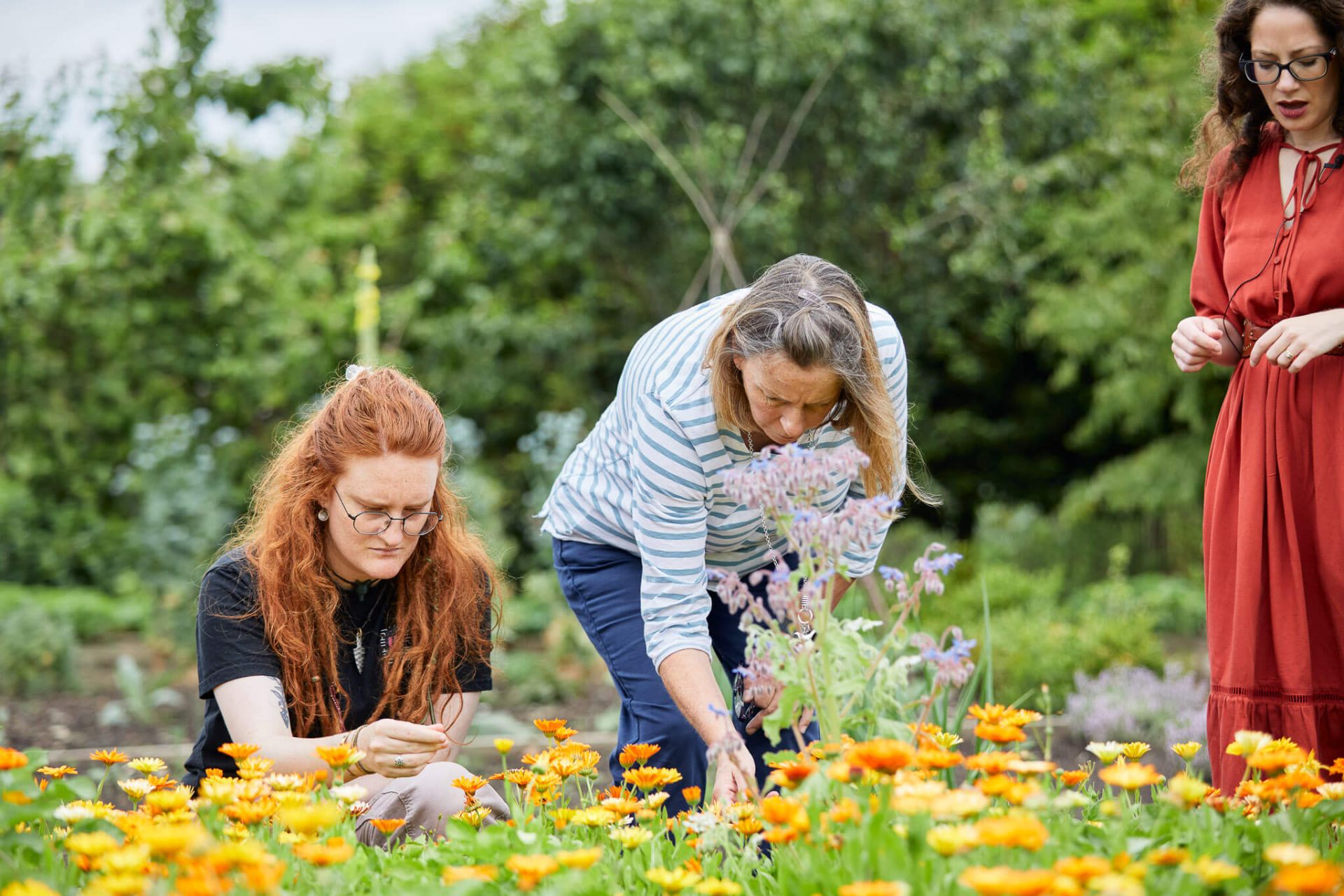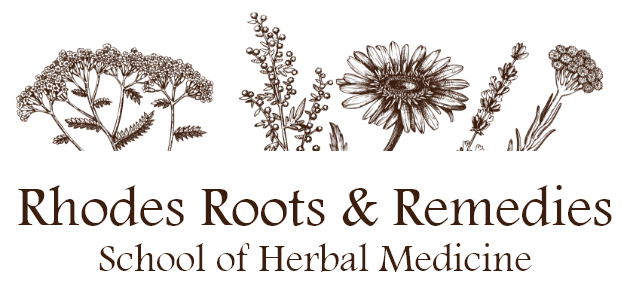If you’re feeling the call to commit to dedicated learning of herbal medicine, you may be worrying you’ll feel like you’re going back in time. Especially if you’ve already done a degree (or two!), have qualifications, already have a career (or have retired from yours!), the thought of going back to papers, revising, exams, required reading and being marked for your work - let alone being surrounded by people in a completely different stage of life to you can be less than inspiring. But attending herbalism school - or enrolling on a herbal medicine course, as we’d call it here in the UK - doesn’t have to feel like going back to university. Here’s why.

1. Herbalism students span all ages and stages of life
People decide they want to learn herbalism for a wide range of reasons - some have had lifelong health challenges they want to overcome themselves, others a lifelong interest in plants and nature. Some feel the call towards knowledge of natural medicine after they’ve had children, others once they’ve retired and feel they finally have time and space to focus on what’s really important to them. Whatever the reason, you’ll find most students at a herbalism school are a much more mixed bunch than you’re likely to find in a traditional university setting.
2. Very few herbalism courses are run out of universities
Most herbalism schools in the UK are independent - either running as an accredited institution if they’re offering qualification courses for people who want to become clinical herbal medicine practitioners or being run as courses by herbalists with a passion and skill for teaching. Settings for teaching include gardens, out in the forests and hedgerows, or - in the case of our intensive herbalism course - in a purpose-built yurt in the English countryside. You’ll be hard-pressed to find a course in a windowless university lecture hall under fluorescent lights.
3. Assignments look different
Things work a bit differently on qualification courses for clinical practitioners, but for many courses run by a herbalism school, you won’t have the classic lengthy lists of required reading, endless papers to write and exams to revise for. It depends on the course, but assignments are more likely to look like asking you to practise making a new type of herbal remedy you’ve just learned or encouraging you to grow and harvest your own herbs. You may be asked to drink the tea of one herb for a week and jot down your notes. It may be recommended to just go sit with a plant growing wild and observe it (perhaps sketch it if you’re artistically inclined).
4. Your tutor knows you’re motivated to learn - you don’t have to prove it to them
If you’re attending a course at a herbalism school, your tutor knows you’re motivated to learn. It’s not something that naturally flows from one traditional academic setting to another with the associated social expectations like university. It’s also not something you’re likely to sign up to unless you know you really want to do it. And you’re more likely to be an adult with a bit more life experience. So you don’t have to prove anything to your tutor. You get to learn herbal medicine because you choose to - and you get to enjoy it!
5. A lot less theory and a lot more reality
Herbal medicine is incredibly practical. Yes, there are core concepts and terminology to learn, but the crux of it is engaging with the plants and deepening your understanding of messages the human body sends - and then how to match the two. At herbalism school, you won’t be bogged down with having to memorise all sorts that leave you wondering when you’re ever going to really use that information or if it applies to the real world. It’s all practical.
6. Herbalism school makes you feel more connected
Universities are often called ‘ivory towers’ because they can feel cut off from the real world. They’re a microcosm of swirling ideas, papers and proving oneself. Herbalism school is the opposite. Yes, it will likely be your special place to exchange thoughts, musings and recipes with fellow students, but ultimately, attending herbalism school makes you feel more connected to the wider world - the rest of nature, your community, your own body. This is because you’re actively engaging with all of these things through your practical studies, rather than just talking about them.
7. You don’t have to put everything else on hold
Going back to school can be a massive commitment in terms of your life, your career, your relationships, your family and your finances. Learning at a herbalism school doesn’t require that. You don’t have to leave your job or work all day and study all night. You don’t have to take out loans for huge sums of money to pay the tuition fees. You don’t have to give up all your family and/or social time. Herbalism courses can fit around your life so that you can bring the knowledge and skills you gain on them into your life.
So if you’re wanting to commit to some dedicated herbalism study and thinking of going ‘back to herbalism school’, but are worried it’ll feel like going back in time, rest assured - herbalism school can be a very different experience! Herbalism students span all ages and stages of life, so you won’t be the odd one out if you’re not 20. Very few herbalism courses are run out of universities. (The one I offer is in a beautiful yurt in the English countryside.) Assignments look different - they’re about giving you an opportunity to organise your thoughts and process what you’re learning. Your tutor knows you’re motivated to learn - you don’t have to prove it to them, particularly if you’re learning with me! Herbalism school focuses a lot less on theory and a lot more on reality, as well as makes you feel more connected, rather than being stuck in an ivory tower. Finally, you don’t have to put everything else on hold, which is a relief when you’re already living a full life!
If you’re here in the UK, you’re very welcome to take the next step on your journey learning herbal medicine with us. Our intensive herbalism course - Awaken Herbal Wisdom - spans all four seasons and gets herbalism both deep into your bones and your daily life. Although it is intense, it’s nothing like being back at school. It gives you the time, space and guidance to learn herbal medicine with depth, practicality and inspiration. We’re not memorising, we’re experiencing.
There are no formal assignments, papers to write, assigned reading to do or exams to revise for. We go through all of the knowledge and skills live together between our in-person gatherings and Zoom sessions, so even if you didn't read, do or make anything outside of that time (although I'm sure you won't be able to resist!), you will still get a deep and solid foundation in the knowledge and skills of herbalism. Whatever you feel inspired to read, do or make beyond our sessions together is completely up to you and very welcome for discussion and questions within the cohort. It's your journey!
You can find all the course details and join the waiting list below.
Whatever your next step learning herbalism is, I hope you enjoy the journey!
At Rhodes Roots & Remedies School of Herbal Medicine, our practice of herbalism is rooted in the belief that we must remember, reclaim and relearn our knowledge of our bodies, our autonomy and how to work with plant medicine in order to bring control of our own health back into our families and homes for a sustainable future for ourselves and the planet. Through our intensive herbalism course, we facilitate the development of confident, empowered herbalists, attuned to the messages of their bodies and the natural world. Living the deep wisdom of herbal medicine within themselves, their homes and their communities, they uplift themselves and others, creating a stronger society organically. We do hope you'll join us on your journey!

